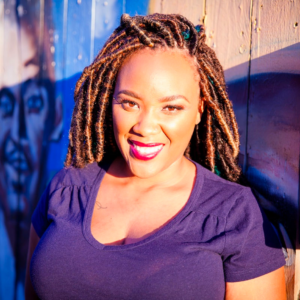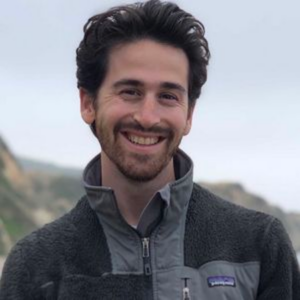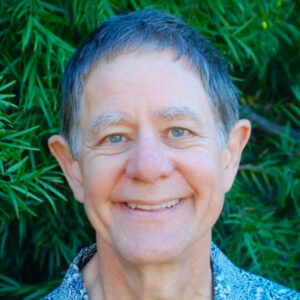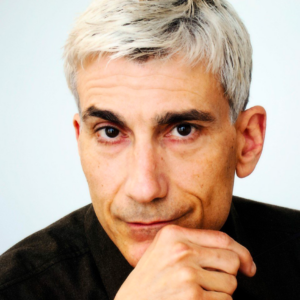Psychedelics and the Seminary Lecture Series 2023
Professor Ayize Jama-Everett of Starr King’s Sacred and the Substance course returns to interview some of the top writers, practitioners, and religious leaders in the psychedelic movement.
Introduction
As the psychedelic revolution begins in earnest throughout the country, more and more seminarians, religious leaders, and people of faith are presented with questions about the role of sacred substances when it comes to religion. Educational institutions from Harvard Divinity to the Naropa Institute are beginning to create theologically oriented psychedelic study programs. As the ever-growing “spiritual but not religious” demographic begins to encounter direct experiences with the divine, the role of the preacher, priest, and spiritual advisor becomes more nuanced. And as issues of cultural appropriation, ethical boundaries, and spiritual bypassing become more evident, the need for open and respectful dialogue becomes even more critical.
All lectures run 5:00-6:30 pm PT.
Lectures
February 28 – Courtney Watson
Courtney Watson is a Licensed Marriage and Family Therapist and AASECT Certified Sex therapist. She is the founder and director of two companies: 1) Doorway Therapeutic Services, a ketamine clinic in Oakland, CA focused on addressing the mental health needs of Black, Indigenous & People of Color, Queer folks, Trans, Gender Non-conforming, Non binary and Two Spirit individuals. 2) Access 2 Doorways, a 501c3 non profit focused on raising money for QT/BIPOC clients to receive legal psychedelic treatment and QT/BIPOC practitioners to complete psychedelic assisted therapy training programs. Courtney has received training from the Center for Psychedelic Therapies and Research at CIIS, MAPS and Polaris Insight Center to provide psychedelic-assisted therapy with a variety of medicines. She is an emerging leader in the field advocating for access for folks with multiple marginalized identities and stresses the importance of BIPOC and Queer providers offering these services.

March 7 – Mariavittoria Mangini
Mariavittoria Mangini, PhD, FNP has written extensively on the impact of psychedelic experiences in shaping the lives of her contemporaries, and has worked closely with many of the most distinguished investigators in this field. She is a founder of the Women’s Visionary Council, a nonprofit organization that supports investigations into non-ordinary forms of consciousness and organizes gatherings of researchers, healers, artists, and activists whose work explores these states. Her long history with the Haight Ashbury Free Clinic includes having been a barefoot patient, a lead clinician in the medical section, and the chair of the Board of Directors – all in the same lifetime. She is Professor Emerita in the School of Science, Allied Health, and Nursing at Holy Names University in Oakland. Her current project is the development of a Thanatology program for the study of death and dying.
The recording of this webinar will not be shared publicly.

March 28 – Sam Shonkoff
Sam Shonkoff (Ph.D., University of Chicago) is the Taube Family Assistant Professor of Jewish Studies at the GTU, where he teaches on Jewish religious thought as well as methods in the study of religion. His scholarship focuses primarily on German-Jewish and Hasidic theologies, as well as appropriations of Hasidic spirituality in relatively secular spheres. Shonkoff is co-editor with Ariel Evan Mayse of _Hasidism: Writings on Devotion, Community and Life in the Modern World_ (Brandeis University Press, 2020) and the editor of _Martin Buber: His Intellectual and Scholarly Legacy_ (Brill, 2018). His current book project investigates themes of embodiment in Buber’s representations of Hasidism vis-à-vis the original sources. He is also affiliated with the UC Berkeley Center for the Science of Psychedelics and taught previously at Oberlin College. Click here to view Shonkoff’s publications.
This event has been cancelled. Stay tuned for a rescheduled date and time.

April 4 – Dave Presti
Dave Presti, PhD is a professor of neurobiology at the University of California, Berkeley, where he has taught for 30 years. He also worked for more than a decade in the clinical treatment of addiction and post-traumatic stress at the Veterans Administration Medical Center in San Francisco, and since 2004 has been teaching and dialoguing about neuroscience with Tibetan Buddhist monastics in India, Bhutan, and Nepal. He has been involved in shifting policy related to research and psychotherapy with psychedelics for 30 years. He has doctorates in biology from Caltech and in clinical psychology from the University of Oregon.
The recording of this webinar will not be shared publicly.

April 25 – Bob Jesse
Bob Jesse has long been a quiet, guiding force behind the contemporary psychedelic renaissance. He was instrumental in forming the psilocybin research team at Johns Hopkins, helped to set its course, co-authored its influential 2006 paper among others, and continues as part of that team. He has led the drafting of foundational documents: a Code of Ethics for Spiritual Guides (1995), an amicus brief (2005) for the U.S. Supreme Court in a successful religious liberty case, and a statement on Open Science (2017) now signed by numerous leaders in the field. He has served on boards and advises various individuals and groups in the space, including the new Berkeley Center for the Science of Psychedelics. Earlier in life, Bob trained at Hopkins in electrical engineering and computer science, consulted for AT&T Bell Labs, and worked at Oracle as a VP of business development.
The recording of this webinar will not be shared publicly.
